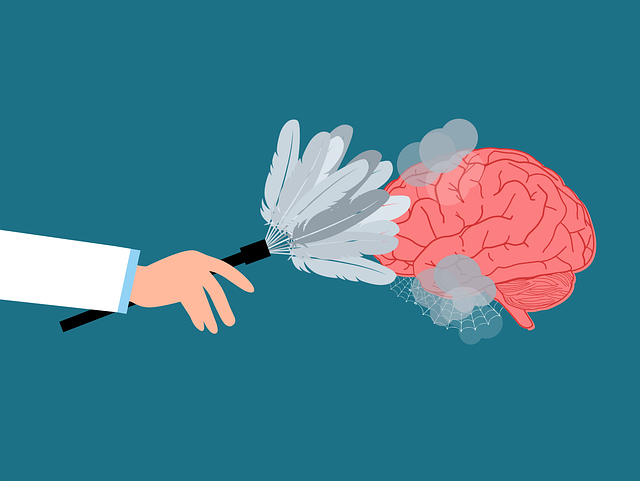Arvada Dialectical Behavioral Therapy (DBT) is a specialized therapy for trauma recovery, focusing on emotion regulation and interpersonal skills. This evidence-based approach, combining structured group sessions and individualized therapy, equips clients with coping strategies to manage stress and process traumatic memories. DBT has proven successful in treating complex trauma, empowering survivors to regain control, develop healthy relationships, and enhance overall emotional well-being, ultimately promoting long-term mental health through mindfulness and resilience.
Trauma can leave profound and lasting effects on individuals’ mental health and daily lives. Understanding trauma and its impact is crucial in providing effective support. This article explores various aspects of trauma support services, including the role of Dialektical Behavioral Therapy (DBT) as a powerful tool for recovery. We delve into Arvada DBT therapy, a specialized approach, and guide readers on accessing trauma support, emphasizing comprehensive care for fostering resilience.
- Understanding Trauma and Its Impact
- The Role of Dialectical Behavioral Therapy (DBT) in Trauma Support
- Arvada DBT Therapy: A Specialized Approach
- Accessing and Navigating Trauma Support Services
- Fostering Recovery and Resilience through Comprehensive Care
Understanding Trauma and Its Impact

Trauma is a complex psychological response to distressing events that can have profound and lasting effects on an individual’s mental health. It often manifests as intense emotions, flashbacks, and avoidance behaviors, impacting daily functioning and overall well-being. The impact of trauma varies widely, affecting individuals physically, emotionally, and cognitively. Recognizing the signs and understanding the extent of trauma is crucial in providing effective support, which is where services like Arvada Dialectical Behavioral Therapy (DBT) play a vital role.
DBT is a specialized therapy approach designed to help individuals regulate emotions, improve interpersonal skills, and enhance overall resilience. By focusing on these areas, DBT aids in breaking the cycle of avoidance and self-destruction that often follows traumatic experiences. This therapy method has been particularly successful in treating complex trauma, enabling folks to process their memories, develop healthy coping mechanisms, and rebuild a sense of safety and control over their lives. Incorporating resilience-building techniques alongside mental health education programs design can further strengthen individuals’ ability to navigate life’s challenges and prevent burnout, especially for healthcare providers working with trauma survivors.
The Role of Dialectical Behavioral Therapy (DBT) in Trauma Support

Dialectical Behavioral Therapy (DBT) has emerged as a powerful tool within trauma support services, offering individuals coping skills to navigate the challenges that arise from traumatic experiences. Arvada Dialectical Behavioral Therapy, in particular, focuses on helping clients regulate emotions, improve interpersonal effectiveness, and enhance distress tolerance—essential elements for those healing from trauma. Through structured group sessions and individualized therapy, DBT fosters better stress management, a crucial aspect of public awareness campaigns development aimed at supporting survivors.
By teaching effective coping strategies, DBT empowers individuals to confront and process traumatic memories while developing resilience. This approach is invaluable in the journey towards recovery, ensuring that clients not only survive but thrive after trauma. The comprehensive nature of DBT, which includes learning mindfulness techniques and emotional regulation skills, prepares individuals to face life’s challenges head-on, promoting long-term mental well-being.
Arvada DBT Therapy: A Specialized Approach

Arvada Dialectical Behavioral Therapy (DBT) offers a specialized approach to trauma support, focusing on emotional regulation skills that can transform lives. This evidence-based therapy is designed for individuals struggling with complex emotional experiences, often stemming from past traumas. By integrating cognitive and behavioral techniques, DBT empowers clients to manage intense emotions, reduce impulsive behaviors, and improve interpersonal effectiveness.
The program’s core components include individual therapy sessions, group skills training, phone coaching, and a strong community support network. This comprehensive approach addresses the multifaceted needs of individuals dealing with trauma, fostering mental wellness through a structured yet flexible framework. Moreover, Arvada DBT Therapy has been recognized for its effectiveness in various mental health contexts, including those explored in the Mental Wellness Podcast Series Production and highlighted through Mental Health Policy Analysis and Advocacy initiatives.
Accessing and Navigating Trauma Support Services

Accessing trauma support services can be a significant step toward healing for individuals navigating the aftermath of traumatic events. In Arvada, Dialectical Behavioral Therapy (DBT) offers a specialized approach to addressing complex emotional challenges and fostering resilience. DBT combines cognitive-behavioral techniques with mindfulness practices, providing clients with essential tools to manage intense emotions, improve interpersonal effectiveness, and enhance overall emotional well-being. This therapy is particularly beneficial for those dealing with trauma-related disorders, as it teaches effective coping strategies and builds confidence in navigating difficult situations.
Navigating these services can be a daunting task, but with the right guidance, individuals can access the support they need. Empathy building strategies are at the core of DBT, ensuring clients feel understood and supported throughout their journey. By promoting emotional well-being through various techniques, therapists enable clients to regain a sense of control and develop healthier coping mechanisms. This process empowers individuals to take proactive steps towards healing and personal growth, ultimately leading to a more fulfilling life.
Fostering Recovery and Resilience through Comprehensive Care

In the journey towards recovery from trauma, comprehensive care that addresses all aspects of an individual’s well-being is paramount. This holistic approach includes fostering emotional healing processes through evidence-based practices like Arvada Dialectical Behavioral Therapy (DBT). DBT equips individuals with valuable skills in emotion regulation, distress tolerance, mindfulness, and interpersonal effectiveness, empowering them to navigate life’s challenges more effectively. By integrating this therapy into care plans, support services can help clients develop a robust self-care routine for better mental health and cultivate emotional intelligence—a key component in building resilience.
Moreover, comprehensive care encourages the development of healthy coping mechanisms and promotes a deeper understanding of one’s emotions. Through personalized therapeutic interventions, individuals can learn to process trauma in safe and supportive environments, ultimately nurturing their capacity for emotional healing. This multifaceted approach ensures that clients not only survive but thrive, becoming more resilient and better equipped to face future challenges.
Trauma support services play a pivotal role in helping individuals heal from the profound effects of traumatic experiences. By understanding trauma’s impact and leveraging evidence-based treatments like Dialectical Behavioral Therapy (DBT), specialized approaches such as Arvada DBT therapy offer transformative paths to recovery. Accessing these services, whether through personal initiatives or professional guidance, is essential for fostering resilience. Comprehensive care that integrates various therapeutic modalities ultimately empowers individuals to overcome adversity and lead fulfilling lives.









